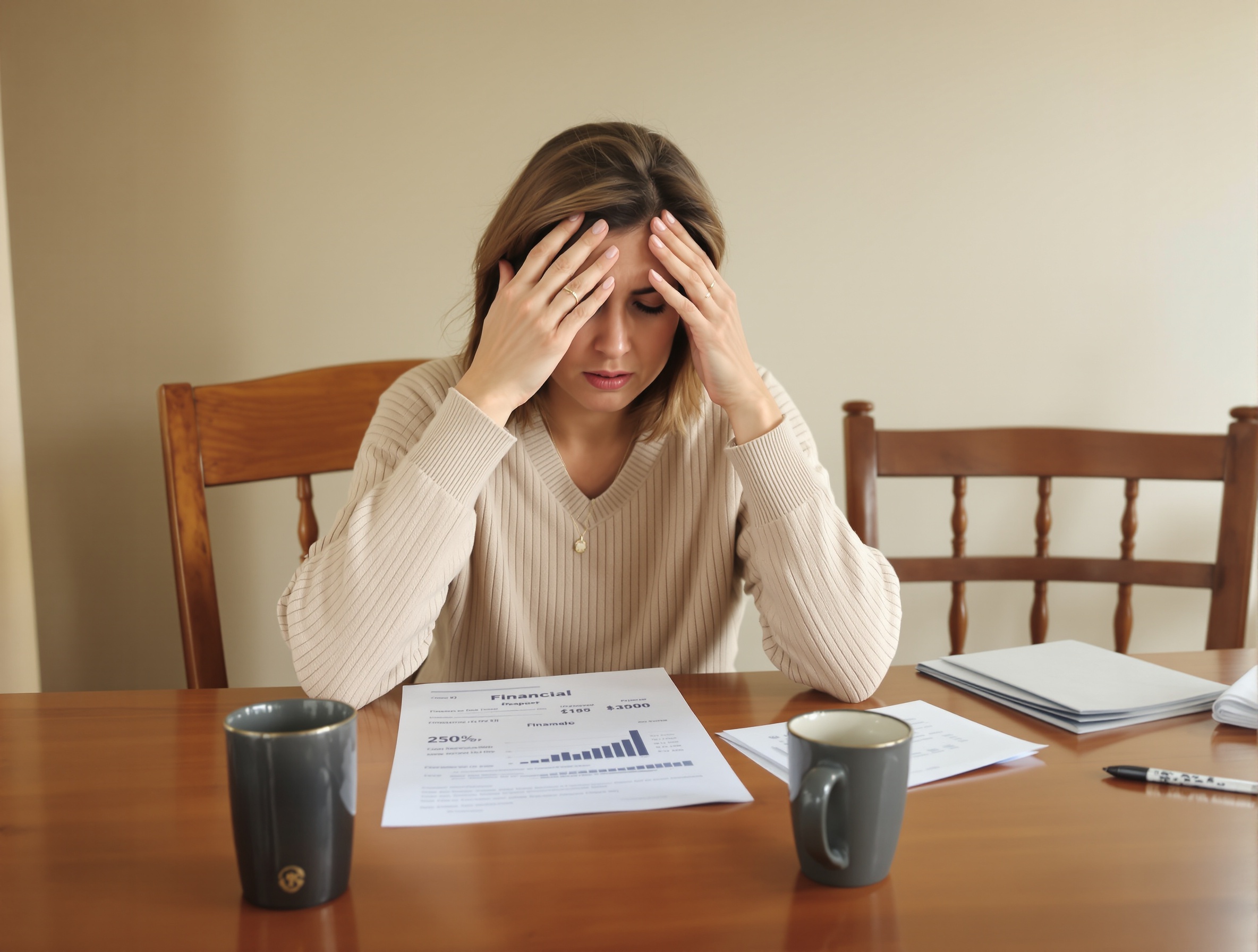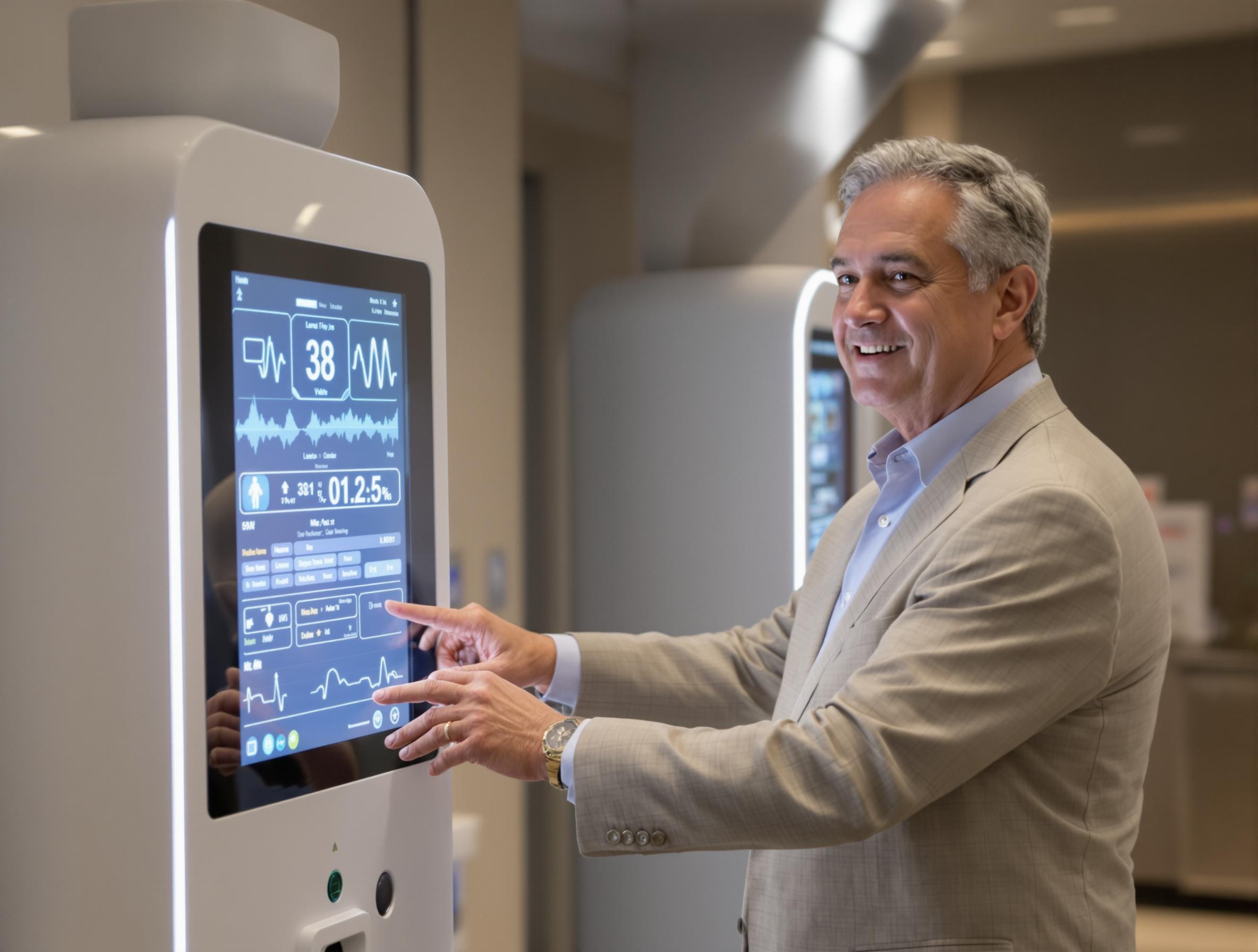Does High Blood Pressure Make You Tired?

Key Takeaways
- Understanding the link between high blood pressure and fatigue is crucial for effective health management, as hypertension can happen without noticeable symptoms.
- High blood pressure increases the heart’s workload, leading to fatigue as the body struggles to maintain proper blood flow through constricted vessels.
- Proactive monitoring and lifestyle changes, such as optimizing sleep and nutrition, can help manage fatigue and blood pressure.
Feeling unusually tired day after day? Many people don’t realize that persistent fatigue might have a surprising source—their blood pressure. Nearly half of U.S. adults have high blood pressure, also known as hypertension, and many don’t notice any symptoms until health issues develop.
What makes this connection so important is how quietly it can affect your daily life, impacting everything from your morning energy to your ability to stay active throughout the day.
At Mobile Care Health, we’re committed to treating your numbers and helping you understand your whole-body health. That includes examining how chronic conditions like hypertension may impact your daily energy levels.
What Is High Blood Pressure?
Your blood pressure measures the force your heart uses to pump blood through your arteries. It’s expressed as two numbers:
- Systolic pressure (top number): pressure when the heart beats
- Diastolic pressure (bottom number): pressure when the heart rests between beats
According to the American Heart Association, a normal blood pressure reading is around 120/80 mmHg. High blood pressure is typically diagnosed when readings exceed 130/80 mmHg.
Left untreated, high blood pressure can lead to serious health complications like heart disease, stroke, kidney failure, and vision loss. But even before those major issues set in, hypertension can take a toll on how you feel day-to-day—and yes, that includes fatigue.
Can High Blood Pressure Cause Fatigue?
Short answer: yes, but indirectly. High blood pressure itself doesn’t always make you feel tired. Many people with hypertension don’t notice any symptoms at all, which is why it’s often called the “silent killer.” However, under certain conditions, high blood pressure can contribute to fatigue.
Let’s break down how:
1. Your Heart is Working Overtime
High blood pressure forces your heart to pump harder to move blood through your body. Over time, this can lead to left ventricular hypertrophy, where the heart’s left side thickens.
That extra work can leave you feeling drained, especially if your heart isn’t pumping blood efficiently. Less blood flow = less oxygen = more fatigue.
2. Poor Circulation
High blood pressure can damage your arteries, making them less elastic and narrower. This reduced flexibility can restrict blood flow to your organs and muscles, which may result in:
- Muscle fatigue
- Brain fog
- Sluggishness after mild activity
So even if your heart works correctly, your cells may not get enough oxygen or nutrients, leading to persistent tiredness.
3. Associated Conditions
Fatigue may not be directly caused by hypertension, but it often accompanies conditions related to high blood pressure, such as:
- Heart failure
- Kidney disease
- Diabetes
- Sleep apnea
Each of these can independently cause or worsen fatigue, and they often go hand-in-hand with high blood pressure.
The Medication Factor: Are Your Pills Making You Tired?
One of the most overlooked causes of fatigue in people with high blood pressure is medication.
Common BP meds that cause fatigue:
- Beta-blockers (e.g., metoprolol, atenolol)
- These slow your heart rate, reducing oxygen demand. They’re effective but can leave you feeling sluggish.
- Diuretics (e.g., hydrochlorothiazide, furosemide)
- Known as “water pills,” these reduce fluid buildup but can deplete potassium and sodium, leading to muscle weakness and fatigue.
- Calcium channel blockers (e.g., amlodipine)
- These can relax blood vessels but may cause tiredness or dizziness as a side effect.
- ACE inhibitors/ARBs (e.g., lisinopril, losartan)
- Generally well-tolerated but may still contribute to fatigue in some people, especially early on.
If your fatigue started after beginning a medication, talk to your doctor—they may be able to adjust your dosage or switch medications.
When to Seek Help: Recognizing Warning Signs
Living with high blood pressure can sometimes leave you feeling uncertain about your symptoms, especially when it comes to fatigue. While occasional tiredness is normal, knowing when to seek help for high blood pressure-related fatigue can make a real difference in your well-being.
If you experience sudden extreme tiredness, chest discomfort, or trouble breathing, don’t hesitate to call emergency services immediately. These signs need immediate medical care. Call your regular healthcare provider for a same-day appointment for less urgent but still concerning situations, like new or worsening fatigue paired with headaches or dizziness.
Keep an eye out for changes in how you feel daily. Unexplained swelling in your feet or ankles and feeling more tired than usual deserve attention from your healthcare team. Mental fog or trouble focusing, combined with unusual fatigue, are good reasons to schedule a check-up.
Your body gives you these hints for a reason – paying attention to them helps you stay healthy and prevents more serious issues down the road. For after-hours concerns, your healthcare provider’s answering service can guide you to the right level of care.
Myths and Facts: What You Need to Know About High Blood Pressure and Fatigue
Understanding the relationship between high blood pressure and fatigue can be confusing. Every person’s body responds differently to blood pressure changes, and knowing what’s true helps you make better health choices.
- Many believe feeling tired always signals high blood pressure – this is one of the most common myths about blood pressure
- Blood pressure readings matter more than how you feel – you might have high numbers without any noticeable symptoms
- Poor sleep quality can raise your blood pressure numbers while making you feel exhausted
- Changes in your daily habits can help improve both your blood pressure readings and energy levels
- Different blood pressure medications affect energy levels in unique ways – what works for one person might not work for another
- Taking steps to monitor both your blood pressure and energy patterns helps create a clearer picture of your health
Supporting your body’s natural balance takes time, and improvements often come gradually as you make positive changes. Understanding these facts puts you in a better position to work with your healthcare provider on a plan that fits your needs.
How To Manage Fatigue From High Blood Pressure: Simple, Practical Tips
Managing fatigue while living with high blood pressure requires a balanced approach that combines professional guidance with personal care. These proven strategies can help you regain your energy and maintain healthy blood pressure levels:
- Keep a detailed health diary to monitor your wellness journey. Record blood pressure readings, sleep quality, and energy patterns to reveal connections between your lifestyle and feelings.
- Partner with your healthcare provider to optimize your medication schedule. Minor adjustments to timing or dosage can make a meaningful difference in managing fatigue from high blood pressure.
- Design your perfect sleep sanctuary with optimal temperature, lighting, and peaceful ambiance. A consistent sleep schedule supports both energy levels and blood pressure regulation.
- Create an evening ritual that prepares your body for rest, such as gentle stretching or mindful breathing exercises.
- Stay refreshed with proper hydration throughout your day. Your body’s hydration needs are unique – work with your care team to determine your ideal daily water intake.
- Incorporate restorative breaks into your schedule. Brief periods of relaxation help balance your energy and support healthy blood pressure.
- Practice gentle movement with short walks or stretching sessions. These mindful activities promote both physical wellness and natural energy.
Taking control of fatigue and blood pressure starts with these personalized strategies. As you implement these changes, your dedicated healthcare team can fine-tune approaches based on your unique needs and response.
Frequently Asked Questions (FAQs)
If you’re dealing with tiredness and high blood pressure, you may have questions about their connection and what you can do about it. Here are answers to questions many people ask when managing these health challenges.
Why do I feel so tired lately? Could it be my blood pressure?
While not everyone experiences tiredness with high blood pressure, feeling worn out can be connected to your blood pressure levels. You might feel tired because your heart is working harder than usual to pump blood.
I started taking pressure-lowering medicine and feel extra sleepy. Is this normal?
Some medicines that help lower blood pressure can make you sleepy or low on energy. If you notice changes in your energy after starting new medicine, your care team can adjust your treatment plan or recommend taking your medicine at a different time of day.
What signs should make me call my doctor right away?
Contact your doctor immediately if you experience sudden tiredness, chest pain, severe headaches, difficulty breathing, or dizziness. These signs need prompt attention to keep you safe and healthy.
What simple changes can help boost my energy?
Minor adjustments to your daily routine can make a big difference. Try going to bed and waking up at the same time each day, drinking plenty of water, taking short walks, and eating balanced meals with plenty of fruits and vegetables. These changes support both healthy blood pressure and better energy levels.
How can I tell what’s causing my tiredness?
Keep a simple daily note about how you feel, along with your blood pressure readings, sleep quality, and daily activities. This information helps your healthcare team understand your unique situation and create a plan that works for you.
How does personalized care make managing these symptoms easier?
Working with a dedicated healthcare team means getting support tailored to your lifestyle and needs. Your care team can monitor your symptoms closely, adjust your treatment plan quickly, and provide ongoing support to help you feel your best.
Take the First Step Toward Better Energy and Health
If you’re struggling with persistent fatigue and high blood pressure, it’s essential to know that you’re not alone—and it’s not something you just have to live with. Whether it’s your medication, an underlying condition, poor sleep, or lifestyle habits, there are real, manageable reasons why you may be feeling so tired.
Mobile Care Health supports you with compassionate care that looks beyond your blood pressure reading. We believe in treating the whole person, not just the diagnosis. By working closely with your healthcare team, staying active, eating well, managing stress, and getting quality sleep, you can reclaim your energy and feel more like yourself again.
Fatigue may be common, but with the proper support, it doesn’t have to be your norm. Let’s take the first step together toward better days and brighter mornings.
Articles on this site are for general education and do not substitute for professional medical advice. Consult our providers for personalized recommendations





